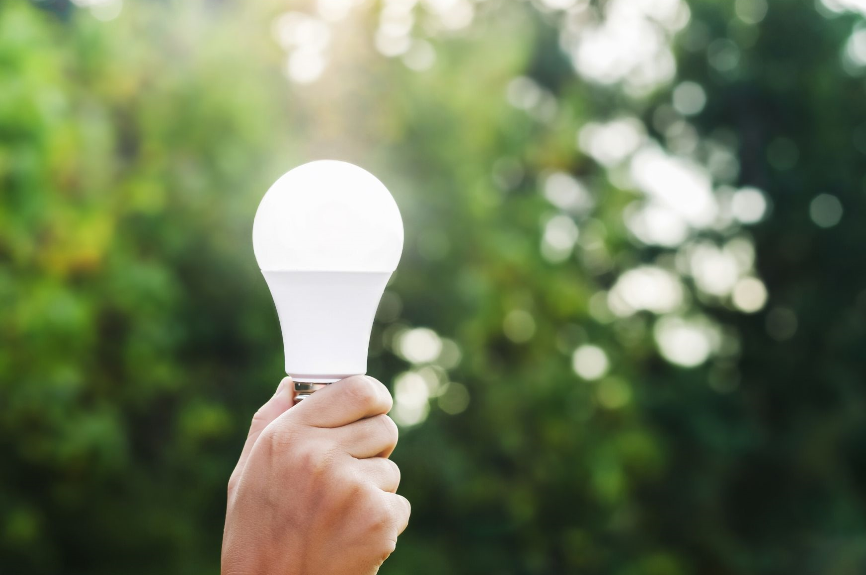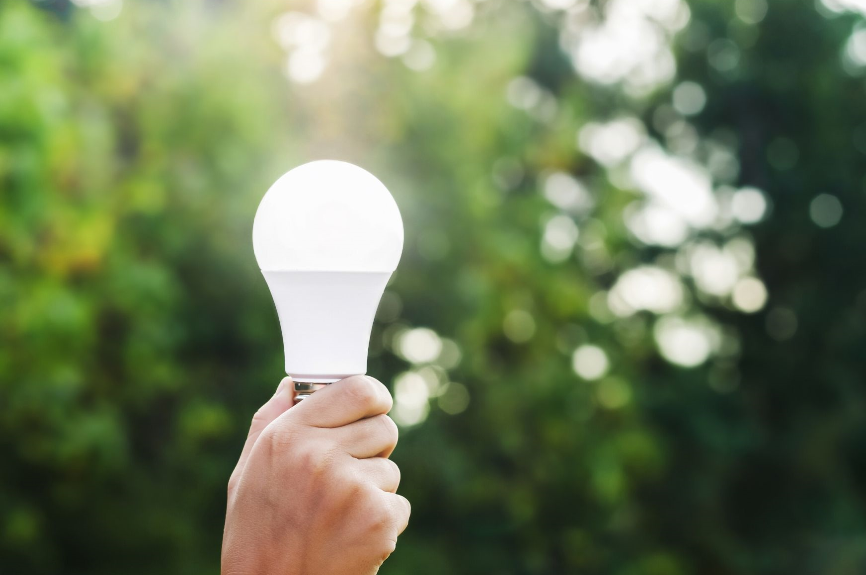By Caitlin Latimer
As we are currently in lockdown many of us are unexpectedly settling into a new routine of working from home. Amidst juggling childcare, working long hours and feelin anxiety during a global pandemic, the last thing we need is to be worrying about are bigger-than-usual energy bills. Although it is inevitable that you will be consuming more energy in your home during this time, you can keep this to a minimum by saving energy on the little things.
In this article, we’ll be looking at a few quick and easy ways to keep your usage low whilst you’re working from home.
Although according to the CCC, emissions produced from UK housing have stalled, energy usage within the home has actually increased. Energy usage in the home accounts for about 14% of total UK emissions, so as well as making sure our homes are well insulated and have efficient heating systems, the way we use energy in the home can have a significant impact on emissions and shouldn’t be overlooked.
We’ll start by looking at some energy-saving behaviours and then move on to a few small and cheap measures you can install easily at home – and can order online.

Washing up by hand
If you’re anything like me, spending more time at home means creating a pile of dirty dishes by the end of the day! There are various conflicting studies out there which have investigated whether hand washing or using dishwashing is more energy-efficient. This is partly because it depends on how you carry out either of these methods, so no matter what you choice is you can do it more efficiently.
Dishwasher
*Make sure it is completely full before turning it on.
*Avoid using a pre-wash setting as this uses a lot of water – just make sure you scrape all food into the food bin instead.
*Use the eco settings which result in lower energy usage.
Hand washing:
*Use a washing up bowl instead of letting the tap run.
*You don’t need a full bowl to wash up, just use half a bowl of water.
*Pre-soak dirty dishes and pans instead of rinsing them.
Air drying clothes:
Although the beautiful weather is mocking us while we are in isolation, it is a good idea to take advantage of it to save energy. Tumble-drying clothes can be one of the quickest ways to ramp up your electricity costs, so consider making the most of this spring weather and hang your clothes up to dry outside for free. Since we’re all spending more time at home it will be easier to keep an eye on your clothes drying on the line!

According to the Energy Saving Trust, line drying your clothes outside during the summer can save on average £30 a year on your electricity bill. Air drying also increases the life span of your clothes as a tumble drier can cause wear and tear. You can also dry your clothes indoors if the weather is bad, just remember to open a window to encourage air-flow in the room and reduce the build-up of moisture.
Turning electronics off standby
According to the Energy Saving Trust, just by turning appliances off standby you can save on average £30 a year. Normally the appliances most likely to be left on are your TV and set-top box, but at the moment we might be leaving our work laptop on overnight. An easy way to try and break the habit on this is by purchasing a stand-by saver, which can be a plug or extension lead which you can control via a remote control to turn off and on. This allows you to remotely turn off multiple appliances at once by the wall, such as your TV, set top box and laptop. Switching your laptop off is also a good idea to give yourself a mental break at the end of your working day.
Cheap energy saving measures
Both measures listed below are cheap, easy to install and can easily be bought online.
Radiator reflective foil:
I recently spent £17.99 on reflective foil which I brought from Amazon and they were very easy to fit, there was also more than enough material to fit all 6 radiators in my property. I only fitted them about 2 weeks ago so I can’t see any difference in my bills yet, however, I have noticed that certain rooms don’t take as long now to heat up.
Fitting reflective foil behind radiators will reflect more heat back in the room instead of letting it escape through an external wall. If you live in a property which already has cavity wall insulation the savings may not be as great as for someone who lives in a property with uninsulated walls, however, due to the low cost of the foil it’s still a worthy investment for any property. According to the Green Age the payback period can range between 0.7 – 4 years depending on your wall type.
LED bulbs:
As the weather is warming up we are using less gas for heating, so it is a good time to take a look at the efficiency of your electricity-reliant devices. One easy and well-known option is installing LED bulbs which are also very easy to buy online. By replacing all bulbs in your home with LED alternatives you could save about £35 a year on your electricity bills.
We hope these tips help you to save energy whilst you are stuck at home, but more than anything we hope everyone is staying safe and well.
Source: greenage.co.uk






